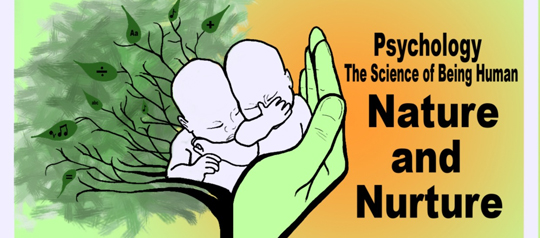“The Science of Being Human: Nature AND Nurture”
The Nature versus Nurture debate is out-of-date. In this public lecture series, members of The University of Western Ontario Psychology Department will share their research showing that humans are neither the exclusive product of our biology nor environment, but rather their interplay.
Program description:
What: A lecture series aimed at showing how psychological science sheds light on what ‘makes us tick’.
When: The series takes place on four consecutive Thursdays (7-8:30 pm) in April 2012 (the 5th, 12th, 19th , and 26th).
Format: 60 minute talk followed by 30 minute Q and A.
Where: Central Library (251 Dundas Street), Stevenson & Hunt meeting Room A.
(Two hours of validated parking in Citi Plaza during library hours)
Topics:
April 5: What can twins tell us about human behaviour?
Presenter: Dr. Tony Vernon
Why are some people more extraverted, more conscientious, more intelligent than others? Behavioural genetics is the scientific study of these individual differences, seeking to identify the extent to which genetic and environmental factors contribute to them. I will illustrate how studies of twins have contributed to our understanding of personality.
Dr. Vernon studies individual differences in personality and mental abilities. The majority of his research deals with identical and fraternal twins
April 12: Children’s emotional development: Biological influences in social context
Presenter: Dr. Elizabeth Hayden
Decades of research indicate that children’s emotional styles (i.e., child temperament) are influenced by both biological and environmental factors, but how these influences interact is less well known. In this talk, I will discuss my research on how children’s biological characteristics shape, and are shaped by, their environments.
Dr. Hayden studies children’s emotional development as a function of biological factors and the early environment
April 19: How cultural experiences shape brain function: Evidence from reading and math
Presenter: Dr. Daniel Ansari
One of the hallmarks of our culture is the use of symbols such as letters and numbers. We are a symbolic species. In the present talk I will discuss how the brain becomes enculturated and how biology and culture interact in order to enable us to read and calculate.
Dr. Ansari studies how children learn basic number concepts and acquire arithmetic skills. He uses both brain imaging and behavioural methods in his research.
April 26: The effects of music on brain and body.
Presenter: Dr. Jessica Grahn
Music affects us in many ways, even before we are born. This talk will explore how our musical sense develops over time and the long-term effects of music on brain function.
Dr. Grahn investigates how music affects brain and behavior. Topics include: how music makes us move; how musical training changes brain structure, and whether music can benefit neurological patients. Her research involves both brain imaging and behavioural techniques.
Help spread the word! Download the promotional poster HERE


